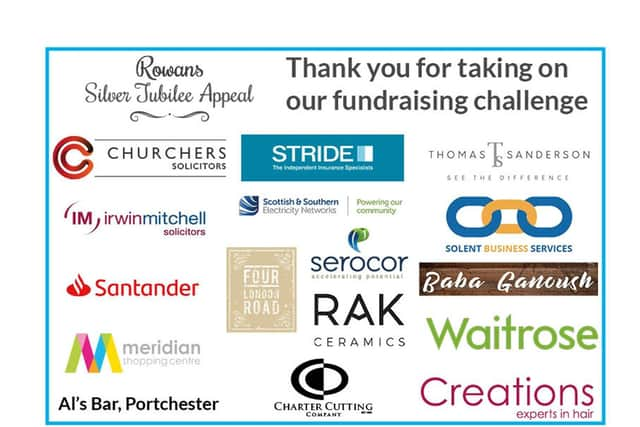Why creative writing is being used by the Rowans Hospice to help patients


The emotional impact of receiving diagnosis of a life-limiting illness cannot be underestimated. Like an earthquake, the impact is felt by the person diagnosed, their family and circle of friends.
That is why hospice care is so much more than just treating the symptoms of an illnesses, it is caring for the whole person - physical, emotional and mental.
Through her work in mental health, Lesley Ann Morgan, Deputy Manager at the Living Well Centre, would often encourage people to write.


She says: ‘Quite often when someone is really struggling with their emotions, their feelings are all over the place and they can’t quite untangle them. Writing it down can be quite cathartic.
‘Just to sit there and write without thinking, without trying to construct a sentence, just writing your thoughts down provides a way for people to express themselves, to try and figure things out.’
Recognising writing as a tool to assist the mental and emotional wellbeing of patients and their carers, Lesley Ann researched and designed a four-week creative writing course, which is run free of charge at Rowans Living Well Centre.
Whilst running the course, she has noticed how general topics, such as the journey into work, a holiday or even a stack of props have sparked thoughts or words in individual participants, relating to issues or concerns they have been struggling with.
Through the exercise of writing, reviewing their work at different stages in the session, it has helped people process their thoughts on an issue and gain some clarity.
Lesley Ann says: ‘Once written down it is up to the person what they do with that. They can burn it, they can tear it up, they can share it, they can unpick it and think actually it is this bit that I need to be looking at. It is a way of getting those feelings out in a safe place, one in which they don’t have to share.’
She adds: ‘People who have joined the course have really enjoyed it and felt the positive impact writing can have. As well as giving someone another medium to try and help express themselves, it really is about having a bit of fun.’
Talking about the course, Graham Street from Portsmouth comments: ‘It’s been really stimulating, I have found the classes take your mind away from your cloud. Looking at random objects, you allow yourself to drift off somewhere separately from your everyday life.’
Ann Cooper, of Fareham, who also took part in the course, adds: ‘Before coming on the course, the only writing I did were letters, e-mails or other necessary writing. I have found the classes really interesting. Having to write something down is rather different to just letting thoughts drift through your mind.
‘I found it made me concentrate more and brought out things that I hadn’t really acknowledged, which was quite challenging.
‘The hardest session was the first one: I did not know what was expected of me, I didn’t know the people round the table. There was also the worry that it was going to be academic.
‘There was the initial panic of thinking that I had to write “something” about the objects on the table. Basically it was because it was unknown.
‘Each week has been stimulating and so interesting to see how everyone else interpreted the props. As each week went by the more we shared.
‘One week we were presented with a pile of buttons. Seeing them, it hit me immediately and I started to write about embroidery and needlework because that is what I love to do.
‘Since doing that piece of writing it has motivated me to pick up my needle and thread again! The whole course has been really enjoyable and has highlighted to me that if you really want to do something you have got to make the time to do it.’
The impact of receiving a diagnoses of a life-limiting illnesses has no boundaries. It goes beyond the physical, it impacts a person emotionally and mentally. It impacts on loved ones as well. That is why supporting mental health is an integral part of Rowans care.
Support your hospice
The creative writing course is just one of a wide variety of courses, programmes and services that Rowans Hospice offers to holistically care for the whole person with a life-limiting illness and their loved ones, from diagnosis to bereavement.
This care is offered free of charge thanks to the amazing generosity of our local community, who cover 86.5% of the running cost every year.
Support the ongoing provision of this care and help us to renovate the hospice for the future today by pledging to do one thing at www.silverjubilee/rowanshospice.co.uk